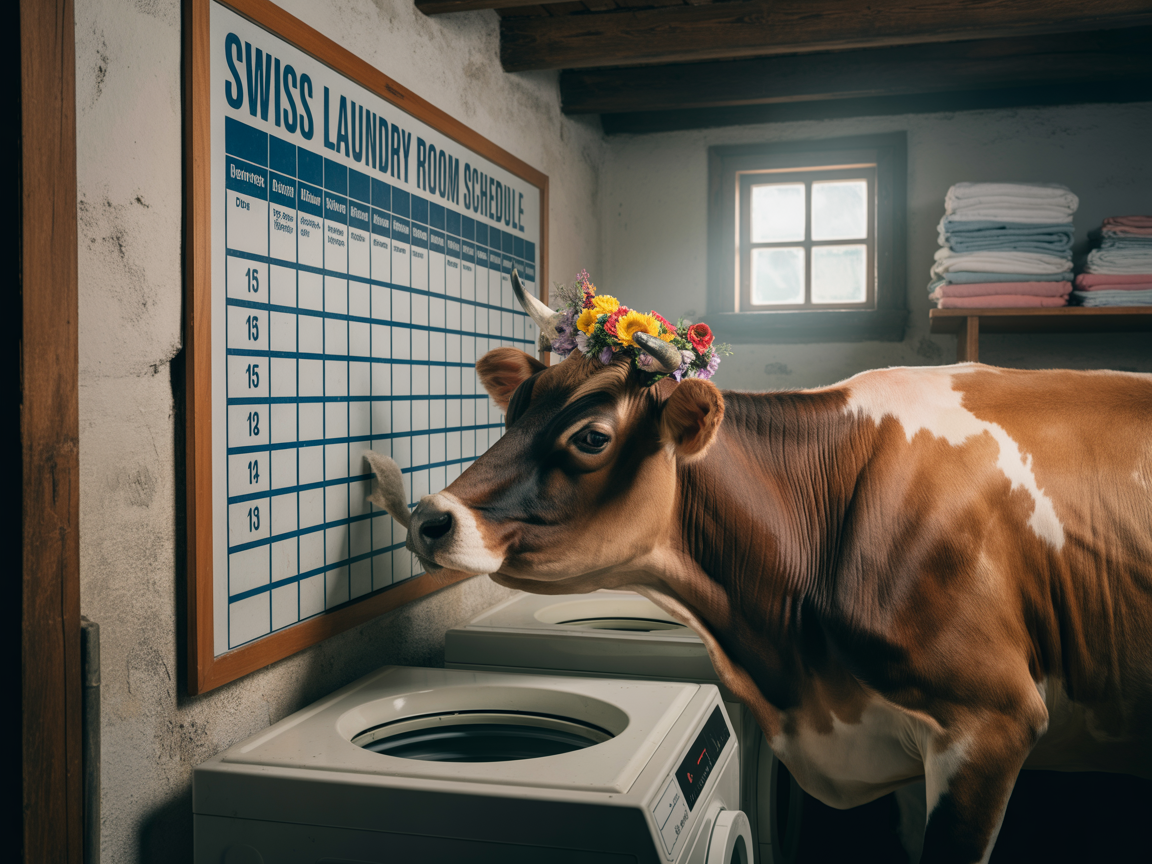So, you’re moving to Switzerland! Once the initial excitement settles, the practical question of shipping household goods to Switzerland comes to the forefront. How do you get your cherished belongings, furniture, and memories safely to your new Swiss home? This guide will walk you through international shipping options, help you understand potential costs like container shipping to Switzerland, and demystify the crucial customs requirements for moving to Switzerland process.
Key Decisions Before You Ship: Volume, Budget, and Timeline
Before diving into quotes and customs forms, take stock:
- What are you shipping? Seriously declutter. International shipping costs are heavily influenced by volume and weight. The less you ship, the more you save.
- What’s your budget? This will influence your choice of shipping method and service level.
- What’s your timeline? Do you need your items urgently, or can you wait several weeks for sea freight?
Understanding these factors will help you choose the most suitable options.
International Shipping Options to Switzerland
There are three primary methods for shipping household goods to Switzerland:
1. Sea Freight: The Standard for Large Moves
Ideal for entire households or significant amounts of furniture. Goods are typically loaded into shipping containers.
- Full Container Load (FCL):
- You rent an entire 20ft or 40ft container.
- Pros: Your goods are isolated, potentially faster transit once at sea (no waiting for other consignments), more control over loading if you oversee it.
- Cons: More expensive if you don’t have enough to fill it.
- Container shipping to Switzerland costs vary by route and size (e.g., a 20ft container from North America could range from $2,000-$5,000+ USD, a 40ft from $3,500-$8,000+ USD, excluding origin/destination services and customs).
- Less than Container Load (LCL) / Groupage:
- Your belongings share space in a container with other people’s goods.
- Pros: More cost-effective for smaller shipments as you only pay for the space you use.
- Cons: Can take longer due to consolidation/deconsolidation at ports, slightly higher risk of handling-related damage if not packed immaculately.
- Pros of Sea Freight (General): Most cost-effective for large volumes over long distances.
- Cons of Sea Freight (General): Slowest option (transit times can be 4-10 weeks depending on origin and destination port congestion).
2. Air Freight: For Speed and Essentials
Best suited for:
- Small, urgent shipments (e.g., essential documents, clothing, items needed immediately upon arrival).
- High-value items where speed and reduced handling are prioritized.
- Pros: Very fast (typically 5-14 days door-to-door). Less handling than LCL sea freight.
- Cons: Significantly more expensive than sea freight (often 5-10 times the cost for the same weight/volume). Not economical for bulky household goods.
3. Road Freight: For European Relocations
If you’re moving from another European country, road freight is the most common and practical option.
- Pros: Relatively fast, door-to-door service, often more flexible scheduling, can be cost-effective for shorter distances.
- Cons: Not applicable for intercontinental moves.
Estimating Shipping Costs to Switzerland
Several factors influence the final cost of shipping household goods to Switzerland:
- Volume & Weight: The primary driver. Calculated in cubic meters (m³) or cubic feet (ft³), and sometimes by weight for air freight.
- Distance & Origin: The farther your goods travel, the higher the cost.
- Shipping Method: Air freight is premium; sea freight is more economical for volume.
- Service Level: Door-to-door services are more comprehensive (and thus costlier) than port-to-port. Packing services, crating, etc., add to the cost.
- Insurance: Essential for peace of mind (see below).
- Time of Year: Peak seasons (summer, holidays) can sometimes see higher prices or tighter availability.
- Ancillary Charges: Potential costs for customs duties (if applicable), taxes, port fees, inspection fees, difficult access, or storage.
Getting Accurate Quotes:
- Declutter first!
- Insist on an in-home or video survey from potential movers for an accurate volume assessment.
- Obtain at least 3-4 detailed, written quotes from reputable international movers. (Refer to our guide on [Link to Comparing International Movers]).
Navigating Customs in Switzerland When Moving
Understanding Swiss customs regulations is crucial for a smooth import of your household goods. Switzerland is not in the EU customs union, so specific rules apply.
Duty-Free Import of Household Goods: Form 18.44
Good news! Generally, you can import your used household goods duty-free into Switzerland when you are officially transferring your residence. The key is Form 18.44 (Application for clearance of personal property).
- Conditions for Duty-Free Status:
- Transfer of Residence: You must be officially moving your place of residence to Switzerland.
- Prior Ownership & Use: The goods must have been owned and personally used by you for at least six months before the move.
- Continued Personal Use: You must intend to continue using these items personally in Switzerland.
- Timing: Goods should generally be imported around the time of your relocation (typically within a two-year window).
- Required Documentation for Customs Clearance (typically submitted by your mover):
- Completed and signed Form 18.44.
- Detailed Inventory List (Packing List): In German, French, Italian, or English, itemizing all goods, with estimated values (in CHF). This list must be dated and signed.
- Copy of your Swiss Residence Permit (Ausländerausweis / Permis de séjour). If not yet issued, an “assurance of a residence permit” (Zusicherung der Aufenthaltsbewilligung / Assurance d’autorisation de séjour) or your employment contract is usually required.
- Copy of your Passport.
- Copy of your Swiss Rental Agreement or Property Purchase Contract.
- Proof of deregistration from your previous country of residence (sometimes required).
The Crucial Inventory List (Packing List)
This document is vital for customs requirements when moving to Switzerland. It must be:
- Detailed: List items box by box (e.g., “Box 1: Kitchenware - plates, glasses, cutlery”; “Box 2: Books - novels, textbooks”).
- Valued: Assign a replacement value in Switzerland (in CHF) for each item/box category. Be realistic; this is also used for insurance.
- Signed and Dated.
- Your moving company will usually help prepare this as they pack, or provide a template if you are self-packing (though self-packing can affect insurance).
Prohibited and Restricted Items: What Not to Pack
Certain items are prohibited or have strict import restrictions. Importing these incorrectly can lead to fines, confiscation, or delays. Always verify with the official Swiss Federal Office for Customs and Border Security (FOCBS) website or your moving company.
- Generally Prohibited: Narcotics, dangerous dogs (breed lists vary), counterfeit goods, child pornography, animal products from endangered species (CITES).
- Generally Restricted (Permits/Limits Apply):
- Firearms and ammunition (require special permits).
- Alcohol and tobacco (duty-free allowances for personal use are limited; excess quantities are taxed).
- Meat, dairy, and other animal products (especially from outside the EU, strict rules apply).
- Plants, seeds, soil, certain fresh foods (phytosanitary certificates may be needed).
- Medications (personal use with prescription usually okay, but check quantities).
- Cultural assets.
- Cash: Amounts over CHF 10,000 must be declared if asked.
Importing Vehicles and Pets (A Brief Note)
- Vehicles (Cars, Motorcycles): Importing these involves a separate, often complex process including technical inspections, registration, and potential taxes/duties if not meeting all conditions for duty-free import as part of household goods. This usually requires specialized handling.
- Pets (Dogs, Cats, etc.): Specific health, vaccination, microchip, and documentation requirements apply. These rules vary depending on the country of origin (especially rabies risk countries).
(We will cover vehicle and pet relocation in more detail in separate guides. For now, consult official FOCBS resources and your mover).
The Customs Clearance Process
- Your moving company, acting as your agent, will typically submit the necessary documents (Form 18.44, inventory, etc.) to the Swiss customs office responsible for the point of entry.
- If all paperwork is in order and conditions are met, customs will stamp Form 18.44, authorizing duty-free import.
- Physical inspection of shipments is not always carried out but can occur randomly or if there are discrepancies. If your container is selected for inspection, this might incur additional costs and slight delays.
- Once cleared, your goods can be delivered to your Swiss residence.
Transit Insurance: Protecting Your Belongings
International shipping always carries some risk, no matter how professional the mover.
- Importance: Protects against loss or damage during transit (e.g., due to accidents, storms at sea, handling incidents).
- Types: “All-risk” insurance is the most comprehensive. Ensure you understand what’s covered.
- Valuation: You’ll typically need to declare the replacement value of your goods in Switzerland for insurance purposes (this often aligns with your valued inventory for customs).
- Discuss options with your mover. They will offer insurance or recommend a third-party provider. Do not undervalue your goods to save on premiums, as this will affect any claim payout.
Practical Tips for a Smoother Shipping Experience
- Declutter Like a Pro: Weeks or months before, go room by room. Sell, donate, or responsibly dispose of anything you don’t need, love, or that isn’t cost-effective to move.
- Professional Packing vs. Self-Packing:
- Professional: Recommended for international moves. Movers use appropriate materials and techniques. Usually a requirement for full insurance coverage.
- Self-Packing: Can save money, but items you pack may not be fully covered by insurance for damages. If you self-pack, use sturdy boxes and proper materials.
- Labelling and Organization: Ensure all boxes are clearly labelled with your name, destination address (if known), box number, and general contents (e.g., “Box 1 of 35 - Kitchen - Fragile”). Keep a master inventory list.
- Important Documents: Keep Them With You: Pack passports, visas, permits, insurance policies, medical records, key financial documents, and a copy of your shipping inventory in your personal luggage, not in the shipment.
- Timing Your Shipment’s Arrival: Liaise with your mover about estimated transit times. Ideally, your goods should arrive shortly after you’ve secured housing and are ready to receive them. Factor in potential customs clearance time.
Your Goods, Safely to Switzerland
Shipping your belongings to Switzerland involves careful planning, choosing the right partners, and understanding customs procedures. By decluttering effectively, selecting a reputable international mover, insuring your goods, and meticulously preparing your documentation for Swiss customs, you can ensure your household goods make the journey safely and efficiently. This will allow you to focus on settling into your new Swiss life with your familiar comforts around you.
Frequently Asked Questions (FAQ)
Q1: How long does sea freight typically take to reach Switzerland from overseas (e.g., North America, Asia)?
A: Door-to-door, including land transport to/from ports and customs, sea freight can take anywhere from 6 to 12 weeks. The ocean voyage itself might be 3-6 weeks, with additional time for port handling, consolidation (for LCL), and customs.
Q2: Can I ship alcohol or tobacco as part of my household goods to Switzerland?
A: Yes, but only limited quantities are duty-free as part of your personal allowance when relocating. Amounts exceeding these allowances will be subject to duties and taxes. Declare any alcohol/tobacco on your inventory. It’s often simpler to purchase these in Switzerland after your move unless they are valuable collection items.
Q3: Do I need to be physically present in Switzerland when my goods clear customs?
A: Generally, you do not need to be physically present at the customs office. Your moving company, acting as your customs agent with your power of attorney and completed Form 18.44, handles the clearance. However, you must have officially transferred your residence or be in the process of doing so.
Q4: What happens if Swiss customs inspects my container?
A: Customs authorities have the right to inspect any shipment. If your container is selected for a physical inspection, it may cause a delay of a few days and potentially incur additional costs (inspection fees, labor for unloading/reloading if required). These costs are typically not included in standard moving quotes and would be your responsibility.
Q5: Can my moving company handle all the Swiss customs paperwork?
A: Reputable international moving companies specializing in moves to Switzerland are very familiar with the customs process. They will guide you on completing Form 18.44, help prepare the detailed inventory, and act as your customs broker to submit the documentation and facilitate clearance. However, you are responsible for providing accurate information and the necessary personal documents.
Disclaimer: Customs regulations and shipping practices can change. This information is for general guidance. Always consult official sources like the Swiss Federal Office for Customs and Border Security (FOCBS) and your chosen international moving company for the most current and specific advice.





